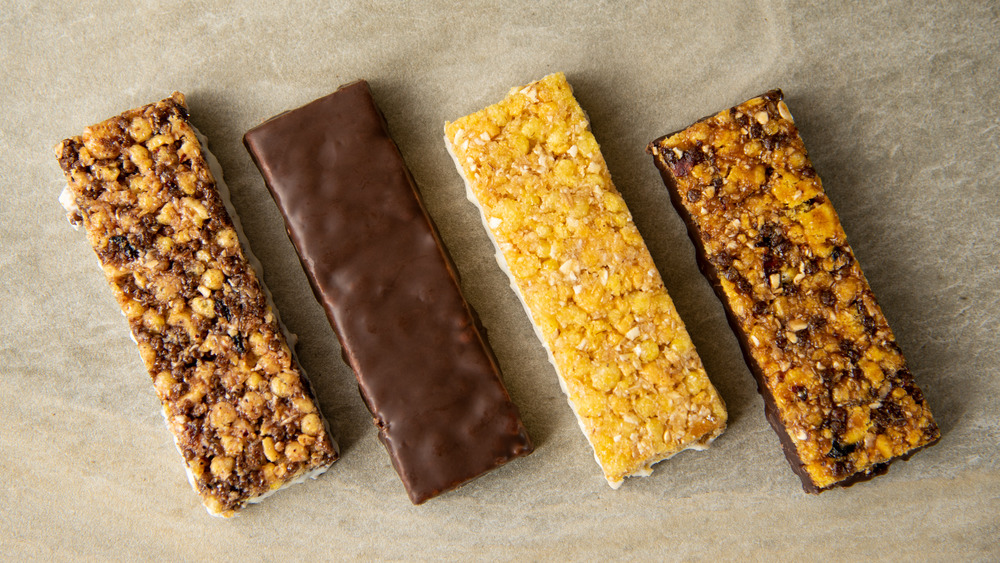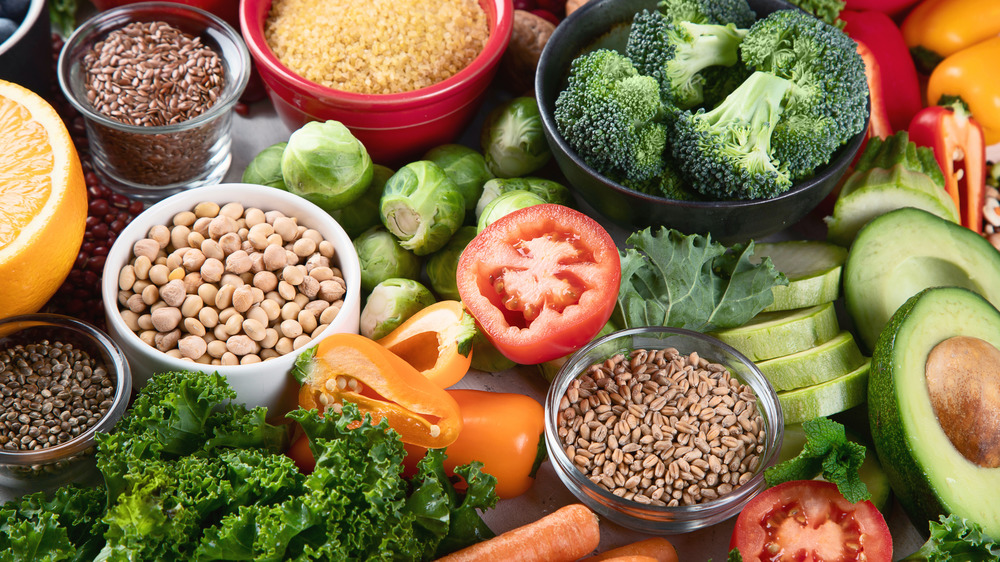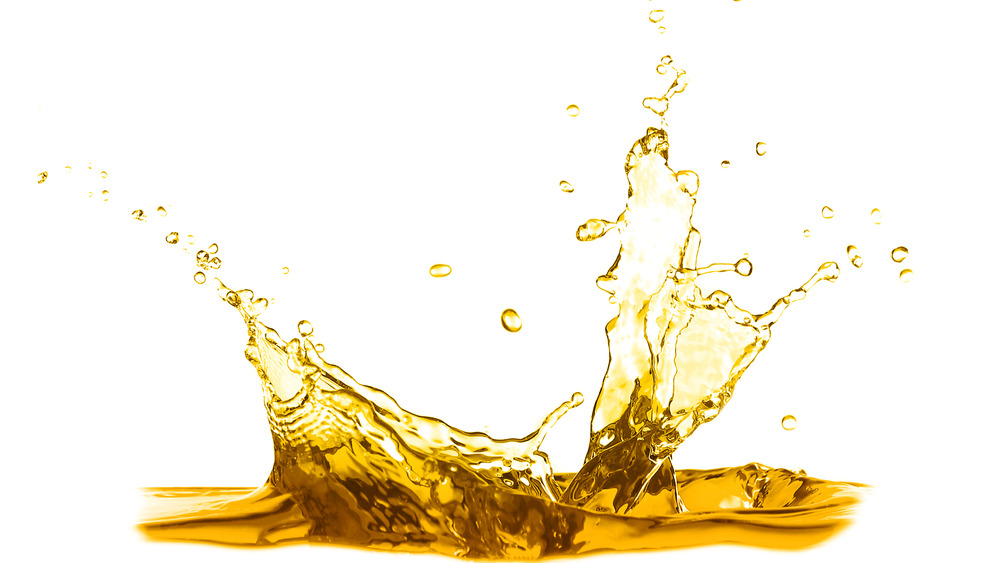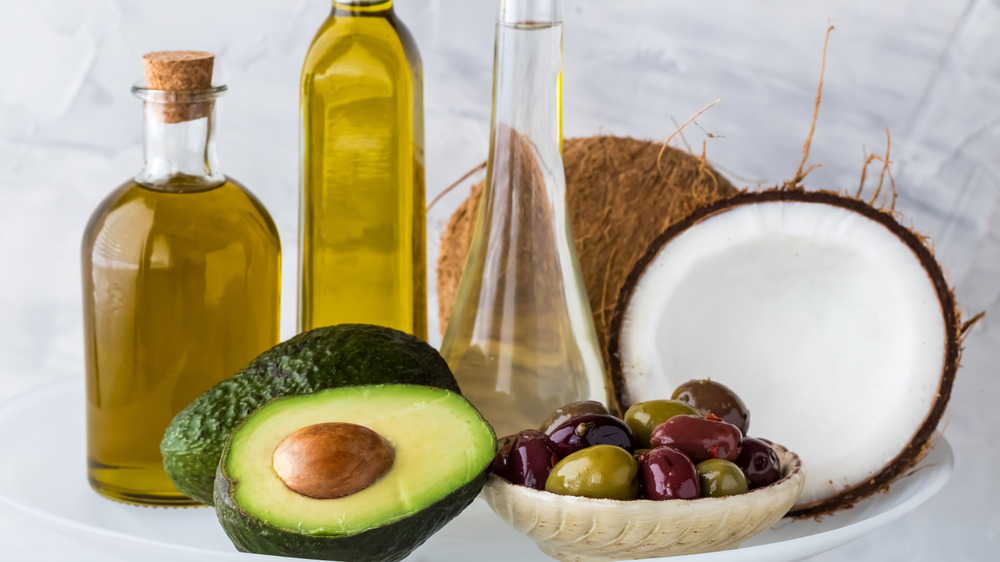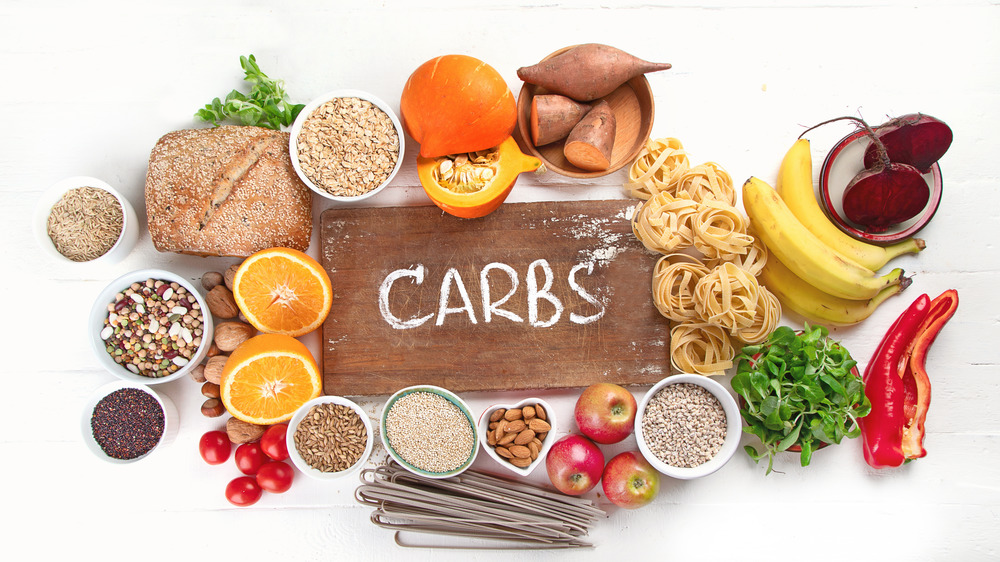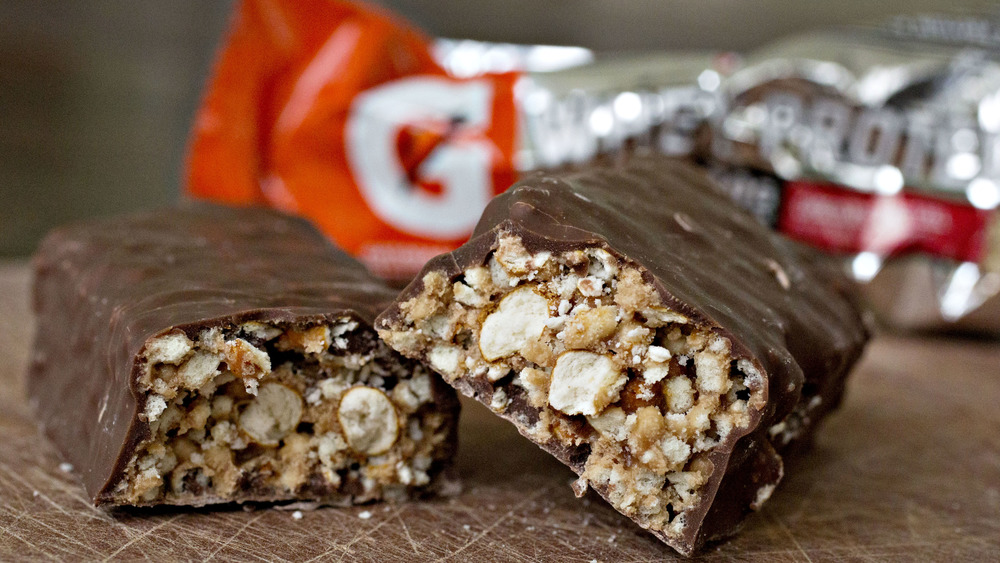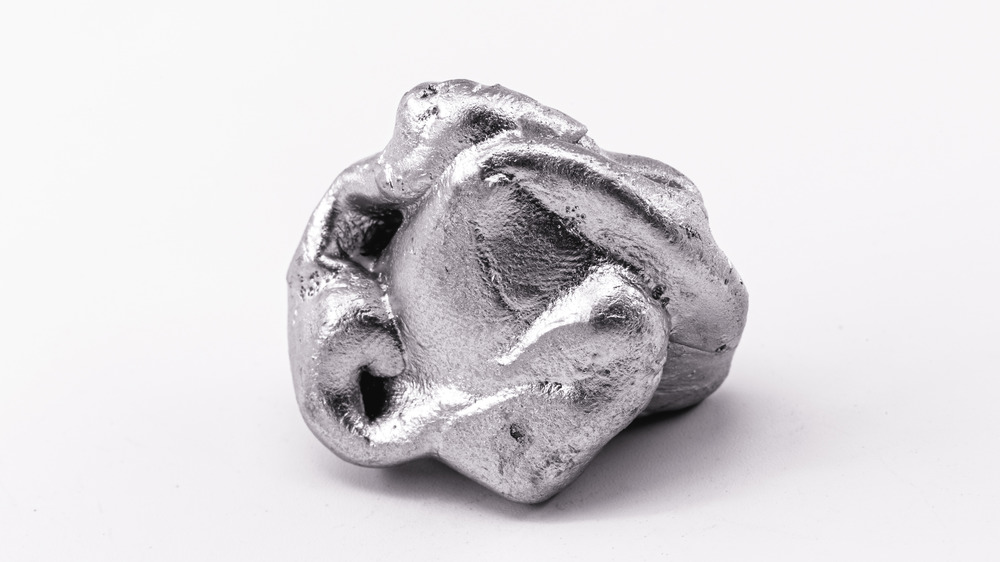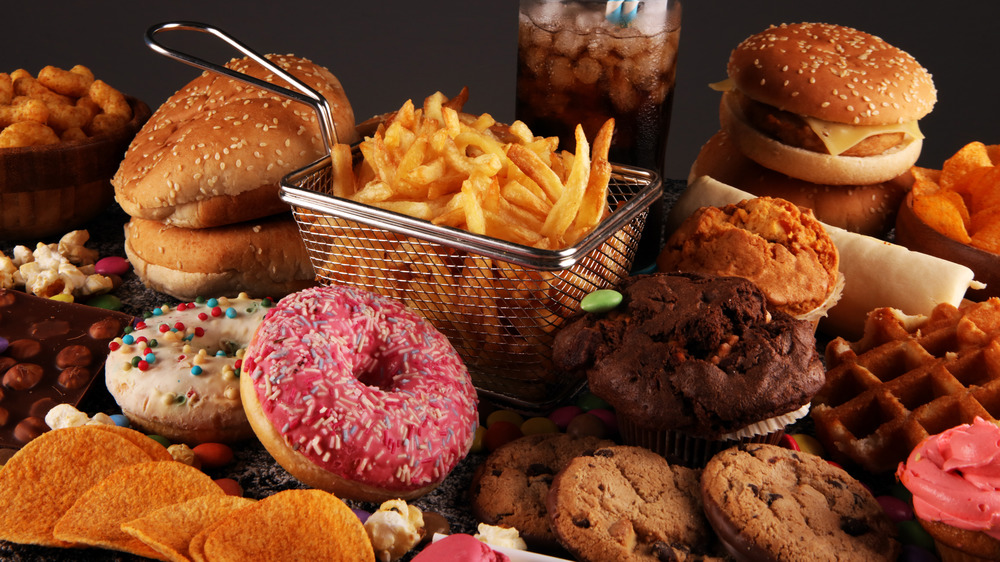The Shady Side Of Protein Bars
In a busy world, protein bars have become a popular fitness aid, time-saving meal replacement, weight loss assistant, and everyday snack. Many grocery stores have shelf after shelf filled with dozens of brands of protein bars, often separate from granola bars and other comparable non-perishable snacks. Sometimes protein bars are even displayed alongside supplements or in a special "health food" section, implying that they could be a superior snacking choice. But all may not be as it seems and popular protein bars may be hiding a few dirty little secrets.
As the truth about ingredients and long-term effects comes out, it appears that protein bars may not be the perfect health food they can seem to be at first glance. For those people trying to lose weight, up their fitness level, or just eat cleaner, a deeper dive is needed to get past the hype and popularity. It turns out that protein bars may have some skeletons in their closet that consumers should take into consideration.
High protein diets may not be your BFF
Too much of a good thing is never a good thing. Protein is great for everything from your hair down to your bones. It can give you energy and help you feel fuller longer. But more is not always better. Too much protein is hard on your kidneys. A healthy person is more likely to develop kidney stones while on a high-protein diet and people who already suffer from kidney disease could find their kidneys struggling even more with a high-protein diet.
So packing in the protein may have benefits for the short term, but as a long-term lifestyle, it's not usually recommended. Knowing how much protein is a healthy amount is difficult, as even experts don't agree how much is too much. Overall, the most recommendations seem to be to focus on filling your diet with a wide variety of nutrients rather than focusing your diet around one specific nutrient.
Protein bars could tip the scale in the wrong direction
Many people reach for protein bars as a way to help them lose weight, using them to replace a meal or as a healthy snack. The trouble is that protein bars aren't actually a diet food, but made to give people energy to burn before or after a workout. If you're eating them at your desk at work or on your sofa while watching TV, you may be in danger of putting on weight instead of taking it off.
Protein bars are often infused with vitamins and minerals, which make them seem like a good meal replacement, except that to make those vitamins and minerals taste good in bar form, they're packed with fat or sugar. While you may be getting some of the same nutrients you would when eating a lean chicken breast and some carrots, you'd also have to cover that plate with chocolate sauce and butter to make it comparable. Experts agree that people, especially teenagers, will be better off eating a healthy meal than replacing it with a protein bar.
Those fats, sugars, and high calories will be burned if you consume them close to when you exercise. But if you don't workout, your body stores those things as fat to use later. So if your goal is to lose weight, adding protein bars without adding exercise could make your scale change in the wrong direction.
Protein bar marketing is all about image
Protein bar ads often include images of six pack abs, bulging biceps, and people in bathing suits at the beach. Protein bar makers want you to associate their product with the perfect muscled, toned, and tanned body of your dreams. They don't even have to make any claims because the implication is that these models got their bodies by simply eating these protein bars, which means you could, too! Even if we know intellectually that it's not an accurate idea, a part of our brain associates that these two images of the protein bar and the perfect body must be related.
On top of the images, many protein bar advertisers use keywords to make consumers believe their products are possibly healthier than they are. While not crossing the line into untrue or illegal claims, some advertisers use very specific language that people associate with health and weight loss. Even the term "protein bar" is designed to focus consumers on that one ingredient, and possibly forget all the others.
Read the fine print on protein bar labels
Often the word protein is written in large, bold font on a protein bar's package. It's important to always read the fine print, which in this case, means the ingredients. Usually written in a tiny font, hidden under the flap on the back of the wrapper, the ingredient list may be long and filled with things that aren't as good for you, including additives and preservatives.
BHA (butylated hydroxyanisole) and BHT (butylated hydroxytoluene) are common preservatives that are also highly controversial. Studies show conflicting information about the safety of these preservatives. In the foods and makeups that use them, BHA and BHT are usually only found in small doses. However the more preserved foods you eat, the higher the dosage you are consuming.
We know it's best to eat fresh foods and avoid processing and preservatives. Despite the presence of protein or other healthy nutrients in protein bars, there are always other ingredients and additives to consider. Not all protein bars contain BHT or BHA, but consumers should read all the ingredients to get a complete picture of what they are eating.
All fiber is not created equal
Fiber is an important part of a balanced diet, not least of all to keep things moving smoothly in the bathroom. Fiber is supposed to help lower blood sugar and may even prevent cancers and help you live longer. Some protein bars use a special fiber called IMO (isomaltooligosaccharides) which is made from rice starch, so that's good, right?
Unfortunately, it turns out that not all fiber may actually be ... well ... fiber. A 2017 study suggests that, based on how the body reacts to it, IMO fiber is not actually a dietary fiber, but a slow-digesting carbohydrate. IMO raised both the blood glucose and insulin levels of the test subjects, opposite to what fiber should do. What matters with ingredients is not what they're called, but how your body responds to them. If your body doesn't react to IMO like a fiber, it doesn't matter what it's called. It might not be helping your body in the way you expected it to.
Protein bars can be saturated fat bombs
Trans fats were made illegal in the United States in 2015, with a grace period until 2018 to give companies a chance to transition to different ingredients. Since then saturated fats have become the new villain of the fat world. Saturated fat raises LDL (low-density lipoprotein), the bad boy of cholesterol that has long been blamed for clogged arteries, heart disease, and heart attacks. The FDA recommends an adult eating a 2,000 calorie diet only consume 10 percent or less of those calories from saturated fats. The American Heart Association recommends only eating about 13 grams of saturated fat a day.
Many protein bars are heavy in saturated fats, offering half or more of that daily recommended amount. Power Crunch Protein Energy Bars have 7 grams of saturated fats. Quest protein cookies have 10 grams, nearly a full daily allowance in one snack. These high levels of saturated fats take many protein bars further away from their use as a healthy food.
On the other hand, the saturated fats in protein bars may not be that bad
There are two sides to every story, and some people are disputing the idea that saturated fats are as unhealthy as is currently believed. Many popular diets such as the Paleo diet and the Keto diet revolve around eating lots of fat, including saturated fats. The goal behind these diets is to get the body to burn fat for energy instead of sugar. Proponents of these diets argue that the studies relating saturated fats to heart problems are outdated and need to be re-examined. Some experts agree.
Researchers posited in the British Journal of Sports Medicine that heart disease and clogged arteries are chronic conditions and not to be blamed on saturated fats. They even say that HDL (high-density lipoprotein), often thought of as "good cholesterol" could be a better indicator of future heart problems than LDL. As our understanding of the human body evolves, older studies do need to be re-evaluated and updated. The discussion on saturated fats isn't settled by any means.
Protein bars have carbs, carbs, and more carbs
While the word "carb" usually brings up an image of bread, in reality carbs are found in all sorts of foods, including beans, fruits, vegetables, and quinoa. Even fiber is a kind of carbohydrate. Humans need carbs for things like energy, digestion, and to keep our brains functioning, but we need the right kind of carbs. Complex carbohydrates provide more benefits for the human body because they take longer to break down.
Added sugars are the wrong kind of carbs, called refined carbohydrates, and many protein bars rely on added sugars for their flavors. The refining process removes vitamins and minerals. Fiber, which helps prevent blood glucose and insulin spikes, is also removed. What's left after refining is a simple carbohydrate that easily breaks down and is less beneficial to the human body than complex carbohydrates. The refined carbs in protein bars are thus "empty calories" rather than a healthier version of carbs.
Protein bars could trade sugar for artificial sweeteners
The debate about artificial sweeteners has had as much back and forth as a tennis match at Wimbledon. Some research studies have claimed that artificial sweeteners cause cancer, while others have said that those experiments were flawed and other studies have claimed to disprove any connection between artificial sweeteners and cancer. The FDA has approved six different high-intensity sweeteners as safe for consumption. Some protein bar manufacturers have turned to these as a way to lower or eliminate their added sugars and decrease calories in their products. But there are other concerns with artificial sweeteners than their much-debated link to cancer: their effect on your taste buds.
Artificial sweeteners are also called high-intensity sweeteners because of the exaggerated sweet flavor even a small amount of them gives food. As people get used to the sweeter taste, they lose sensitivity to less sweet flavors, such as fruits, and may lead people to craving more sugary foods. Instead of helping people ween off of sugar and eat a healthier diet, artificial sweeteners may actually make it harder for people to eat fewer sweets and choose healthy foods.
Protein bars have heavy metals, but not the kind you can headbang to
As odd as it sounds, our bodies actually need a certain amount of metal to function. Iron is required for our bodies to make hemoglobin and myoglobin, both of which transport oxygen to out various parts. Zinc aids our immune systems and repairs DNA. There are also heavy metals that our bodies can't use and are harmed by, such as arsenic, mercury, and lead. Potentially harmful levels of heavy metals have been found in some protein bars.
There's a lot to unpack with that fact, though. Heavy metals are found in Earth's soil and water, which are absorbed by plants, and then passed on to the animals that eat the plants. That means everything from a fresh carrot to a beef burger can have heavy metals present. As the FDA explains heavy metal consumption, "People's exposure comes from many different foods containing these metals."
This one is tough because heavy metals are an inescapable part of our planet, and even the healthiest foods may contain trace amounts. Like all things in life, it's a balancing act.
Protein bars may be worse than some junk foods
People tend to pick a protein bar as a snack because of its relative health. In some ways, protein bars are healthier choices than many other afternoon snacks or desserts. While often compared to candy bars, many protein bars have at least a couple of advantages. The protein as well as other nutrients and vitamins infused in the bar make it a step up from candy. Some, though not all, protein bars also have less sugar or may get their sugars from more natural ingredients, like dates rather than refined sugar.
That doesn't mean that all protein bars are altogether better than other snacks. Cooking Light compared popular protein bars to junk foods and found that in some ways, some protein bars were worse. For example, a Nutramino Coconut Protein Bar has more saturated fat than a Big Mac, and a Powerbar Chocolate Brownie Protein Plus bar has as much sugar as about six Oreo cookies. So while some protein bars could be a better choice than other junk food, they still may not be the ideal choice for an all-around healthy snack.
